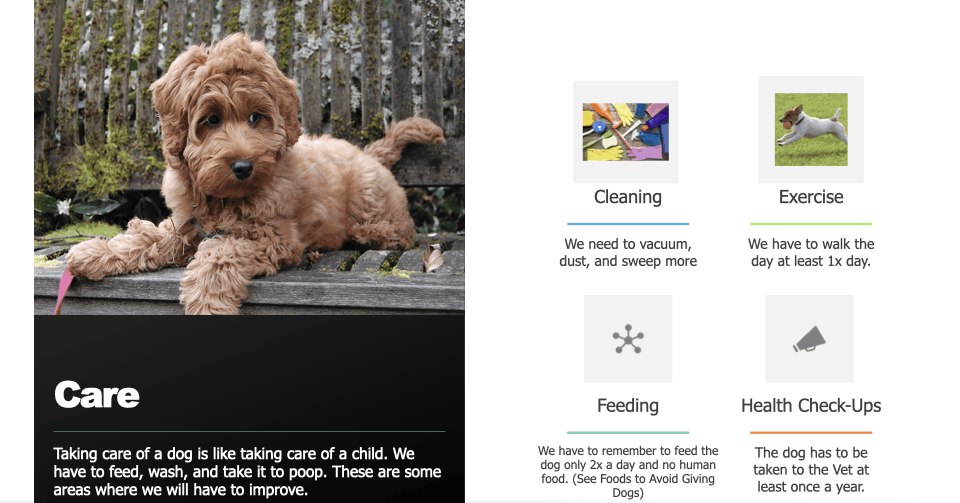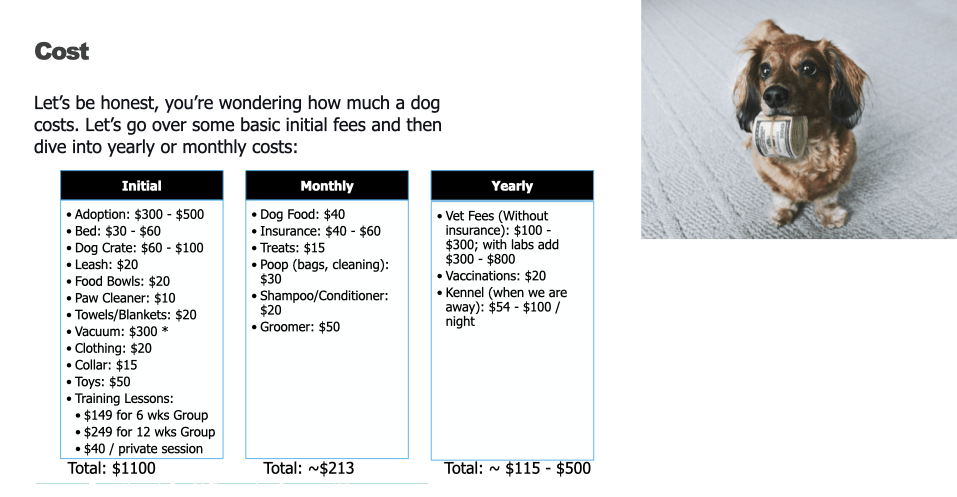When I first started searching for dogs I had 2 primary things to consider: breed behavior traits and if the breed is hypoallergenic.
It's important to note that different dog breeds have different behavior traits. When I was looking for dogs, I initially thought that I wanted a Labrador or a Jack Russell. However, both of these dogs tend to be highly energetic. Labradors are very good with families and children. However, they need lots of exercise and things to keep them entertained and out of trouble. I couldn't offer that. So I researched breeds of dogs that were highly adaptable to their environments. I came across Schnauzers and Golden-doodles. Both were family-friendly, non-aggressive, and adaptable. But only 1 made the cut.
The other consideration I had to make was my family members are allergic to dander in the hair of dogs that shed a lot. So finding a dog breed that was hypo-allergenic was necessary. Hypo-allergenic DOES NOT MEAN the dog doesn't shed. It means a dog is less-likely to cause allergies in humans because the dog doesn't shed as often. And because of this, Schnauzers took the win!
My advice to those looking to adopt a new puppy is consider the needs of your family and research which dog breeds would fit best into them. It's not fair to the dog, nor yourself, if you adopt a dog that you can't keep or maintain.



